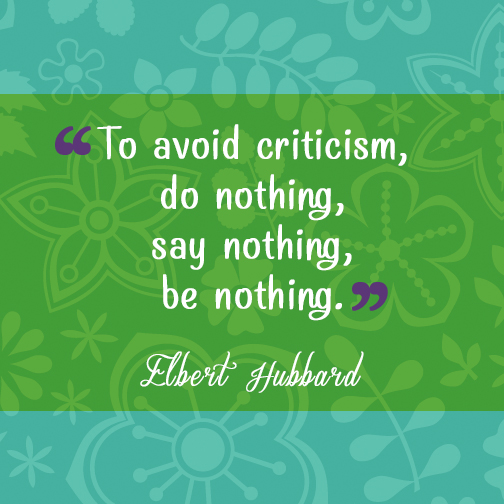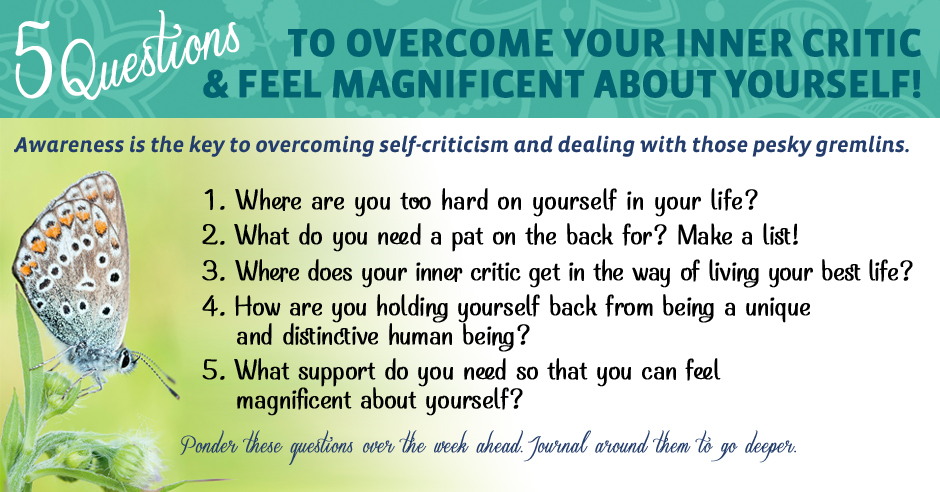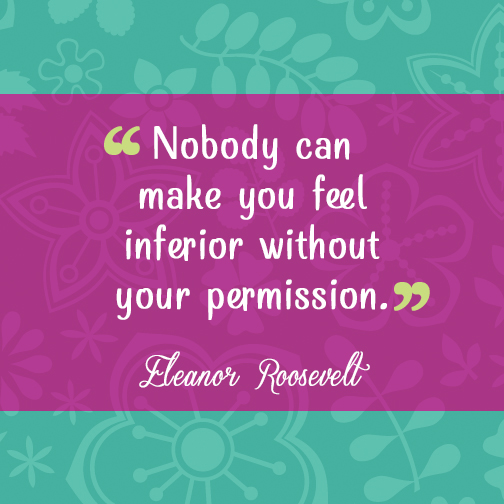
Category: Blog
Tuesday Thought

5 Questions to overcome your inner critic & feel magnificent about yourself!

Monday Inspiration

Powerful Questioning
Let us break down yet another P from the Coaching pointers we looked at some weeks ago.
What is a question?
The Oxford Dictionary defines a question as; ‘a sentence worded or expressed to elicit information’. To add to that, I define it as an inquiry or a query, presented to a person, to prod them to generate a response to you.
In the coaching process, the coach uses questions to spur the coachee to dig deep within them, think about the issues and then come up with an answer; the information that will take them on the journey towards finding the clarity and direction they need. These questions, really need to be impactful, cause the coachee to reflect deeply and answer them instinctively and thoroughly. That is what makes them powerful.
What do powerful questions look like?
- They are open-ended for example, using the question: ‘How would your life change if you take on the additional responsibility?’ allows the coachee to think about what difference an action would make in their routine. The closed-ended version would be: ‘Can you realistically manage the additional responsibility?’. This style of questioning would yield a ‘yes’ or ‘no’ answer, with no room for deep reflection.
- They build on each other – progressively.
Using the coaching process and curiosity, the coach asks each subsequent question by building on the answer to the previous question, thus forming a line of discussion that addresses the issue that the coachee that has presented. The questions journey in such a manner:
- Identifying the issue – ‘What would you like to speak about today?’
- Digging deeper to crystallize the real issue – ‘You mentioned that……… Tell me more?’
- Considering the current situation and creating awareness – ‘What is your current situation ….?’
- Helping the coachee visualize the perfect state they wish to be in – ‘What image comes to mind when you look ahead…?’
- Defining how to get from here to there – ‘What road will take you to that point ahead?’ or ‘What are the stops on the road from here to there?
- Guide to defining actions and examining different avenues for example: ‘What paths can you use to get to that point?’ and ‘‘What options are available to you now?’
- Goal setting to spur execution and accountability –
- ‘How soon will you complete the chosen action?’ and
- ‘Who would be a good choice for you to share this action with?’
- Plus ’Which obstacles do you foresee while you work on your actions?’
- ‘How would you deal with these obstacles?’
- They are simple and succinct.
A coach will ask you one question at a time. A laden question that has two or three sub-questions may confuse the coachee and throw the conversation flow off balance. One of my mentor coaches often says that a question should have 7 words or less.
In summary, questions are powerful tools to use and hence their place in coaching. A question prompts you to think, to search within, to sign up and buy into the coaching process and work towards generating the answer to the question ‘How do I get a better version of myself at home, work and in the world?’
As Rudyard Kipling says:
‘I keep six honest serving men, they taught me all I knew; Their names are What and Why and When, and How and Where and Who’
What next?
How would you like to experience these powerful questions? Fill in the contact form to take it forward.
The Coaching Profession
I am sure the first time you heard the word coaching, you immediately had an image of a popular football manager coming to mind.
It is interesting to note, that Coaching has its roots in the social sciences (anthropology, psychology, sociology), and growing through its use in many disciplines such as education, business, vocational guidance, training and even Human Resources among others, to the great emerging profession it is today. Dr. Vikki Brock (Master Certified Coach) has extensively researched and written an exciting book – The SOURCEBOOK OF COACHING HISTORY – which tells us about the background of Coaching in detail. (Please visit http://coachinghistory.com/ for more.)
Well, history lovers, more in another post. This instance let us break down the word ‘Profession’.
What is a Profession?
There are various definitions of a profession.
- The Oxford dictionary defines of the noun ‘Profession’ as ‘an occupation that needs special education or training, such as medicine or law’
- The Merriam Webster Dictionary says that a profession is ‘an occupation (as medicine, law, or teaching) that is not mechanical or agricultural and that requires special education’
- The Google Dictionary defines it as ‘a paid occupation, especially one that involves prolonged training and a formal qualification.’
- To Wikipedia, a profession is ‘a vocation founded upon specialized educational training, the purpose of which is to supply disinterested objective counsel and service to others, for a direct and definite compensation, wholly apart from expectation of other business gain.’
A Professional
This is a person who is formally certified by a professional body by virtue of having completed a required course of studies and/or practice. This person’s competence can usually be measured against an established set of standards. Some examples of professions are, Medical profession, Legal profession, Teaching profession, Architects, Engineers, Aviators, Accountants, Financial Analysts, Human Resource Professionals and many more.
Characteristics of Coaching that make it a Profession:
- A Governing body
The most renowned body that governs the coaching profession, is the International Coach Federation (ICF). Based in the United States of America, ICF is tasked with the advancement of the coaching profession, and keenly regulates standards throughout the world, through a well-defined framework that is adopted by the many chapters or local associations around the world.
Another organisation, UK Based Association for Coaching, is also a professional governing body which is dedicated to promoting the coaching profession through best practice and raising the standards of coaching worldwide.
- Specialised Training
To become a coach, one must go through specific coach training, offered by an accredited organisation. The training curriculum should be accredited by The International Coach Federation (ICF), or any other similar professional body. According to ICF, this training should be between 30 – 125 hours , and encompasses the delivery of core coaching requirements that include: –
- Internalizing the ICF Core Competencies of Coaching
- Coaching Code of Ethics
- Sessions where the learners practice the coaching using the recommended process and receive feedback from senior coaches, on which competencies they have demonstrated well and what needs to improve.
- An examination – most are practical. Some colleges may offer a combination of written and practical.
A formal qualification
On successful passing of the examination, the learner will be presented with a qualifying Certificate from the training facility (e.g. Certified Professional Coach, Certified Career Coach etc.). One can then use the initials of this qualification after their names.
In addition, The ICF, or AC also then provide professional credentials that can be pursued after attaining specific requirements. Credentialing of coaches serves to further enhance professional credibility, and give you comfort that the coach has invested in learning and developing their craft, for your benefit.
- Occupation
Coaching, just like any other work, is an activity that the coach carries out day to day. There are systems and processes that a coach puts in place to keep the occupation running. The coach is fully occupied in delivering this service to his/her clients. They create strategies, plans and products, schedules and marketing drives.
- Direct and defined compensation
Certified and credentialed coaches earn an income from their practice. Once you engage a coach and wish to proceed with an engagement, you will be presented with a contract and am invoice, to make the relevant payment for the services you will receive. Most credentialed coaches do this on a full-time basis and this is how they earn their living.
- Continuous Education
Like all other professions, coaches are required to continually improve their craft, and keep feeding their mind with knowledge that will help them impact their clients to grow and achieve their purpose.
The coaching bodies do offer opportunities for coach development through workshops, webinars, research opportunities, as well as through mentor coaching. Yes, a coach also needs a coach to keep growing! 😊
Coaching Pointers
Let us learn more about coaching, this time I thought the use of words starting with P may help the lesson….
- Professional
Coaching is a profession. It is governed by a code of ethics, and standards of carrying out the sessions. A coach must be trained, certified and pursue continuous learning in the field of expertise. Through the International Coach Federation (ICF) framework, experience in coaching is recognised by opportunities to earn a credential. (ICF) Coaches do earn a living from the practice!
- Powerful questioning
A coach uses questions to draw out the best in you. You will be amazed what simple questions do to you when a professional coach uses them on you! The coach, is trained to make a simple question (for example What? With whom?, Where?, How often? etc) powerfully strike your mind to release the inner answers and solutions that take you to the next level..
- Progressive
Taking you to the next level! Coaching does that once you immerse yourself in it… and once you reach the desired level, you will realise that you need some more coaching to keep moving up.
- Partnership
You and your coach really work together to ensure you achieve your goals and expectation from the engagement. You are the expert of what you want, the coach is the expert on how to get you there.
- Periodical
Coaching is not a hit and run thing.. Oh no! You agree a period within which you tackle an issue until your expected outcome is achieved. You commit to regular meetings through whichever medium, and evaluate the engagement at the end of the agreed period. The engagement can take a week, a month, months , a year. A reasonable period is 4 – 6 weeks , assuming you have a coaching session each week.
- Whole Person
A coach will accept you as a whole person and respect what is going on in other aspects of your life, should they come up to distract the focus of the coaching engagement.
- Process
Coaching is a process. It has well defined steps from the start to the finish of each session as well as the complete engagement.
- Posterity
Coaching recognises that documentation is key for each client. Agreements for coaching engagements are made, written and signed off and kept for a duration of time after the engagement.
- Private
Confidentiality is critical in the coaching relationship. You can be sure that the coach will never share any aspects of your interaction, unless there is a legal requirement to do so.
I would like to hear your thoughts and questions about the above pointers!
Coaching
What is coaching?
Coaching is a process that uses a series of conversations that are structured to help you walk through matters you are handling, to arrive at actionable outcomes that you can celebrate once executed.
This journey is a partnership between a coach and a coachee. The coachee is taken through a thought provoking and creative process by the coach, including various questioning methods, to inspire the coachee to dig deep within himself/herself and eventually unlock numerous solutions to seemingly unclear situations. The process helps the coachee maximize their personal and professional potential. The coaching process involves a series of conversations, from the initial engagement until the final point, where the coachee achieves his/her picture of success.
A coaching conversation can take anywhere from one session lasting an hour, to many sessions lasting three, six, nine or even twelve months. The conversations keep the focal point as the coachee, because, of course, s/he has the answers within them. The coach continually walks with the coachee on the journey to finding solutions and relevant actions that will lead them to where they want to be.
Coaching directs an individual to focus on the future, while drawing on various experiences from the past and present. The conversation aims to spur the coachee towards achieving momentous changes, action by action.
Why Coaching?
Coaching has many benefits. Through coaching, you can attain:
- An opportunity to identify the things that really motivate you
- A chance to design actions that you can fully own
- The satisfaction of completing actions and the fulfillment that comes with that
- Increased self confidence and self – worth
- Honing of skills, gaining new knowledge and insights
- Improvement in relationships with the people around you
- Chances to challenge yourself and grow
- A view of new opportunities in career or life, and how to harness these
Coaching works!
Take the dive into this by getting fully involved in the process, give the coach all the information, be open, honest with yourself and trust the coach to guide you to the place you want to be.
*This writeup is inspired by my dedication to a 3 month immersion into Coaching, courtesy of CDI- Africa Limited, and experiences I have had with coaching within the last 16 years of my working life.
First blog post
Yes the first post!
This platform is intended to feature topical issues around Human Capital/Human Resources, Coaching, Technology use in our day to day.


